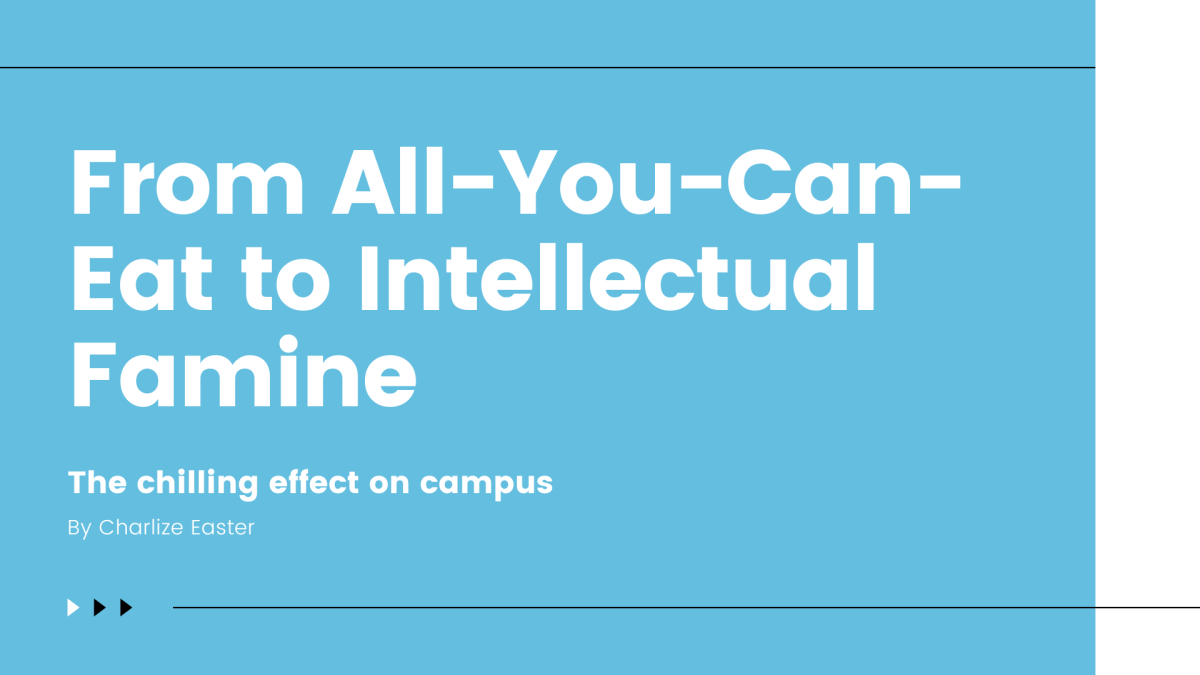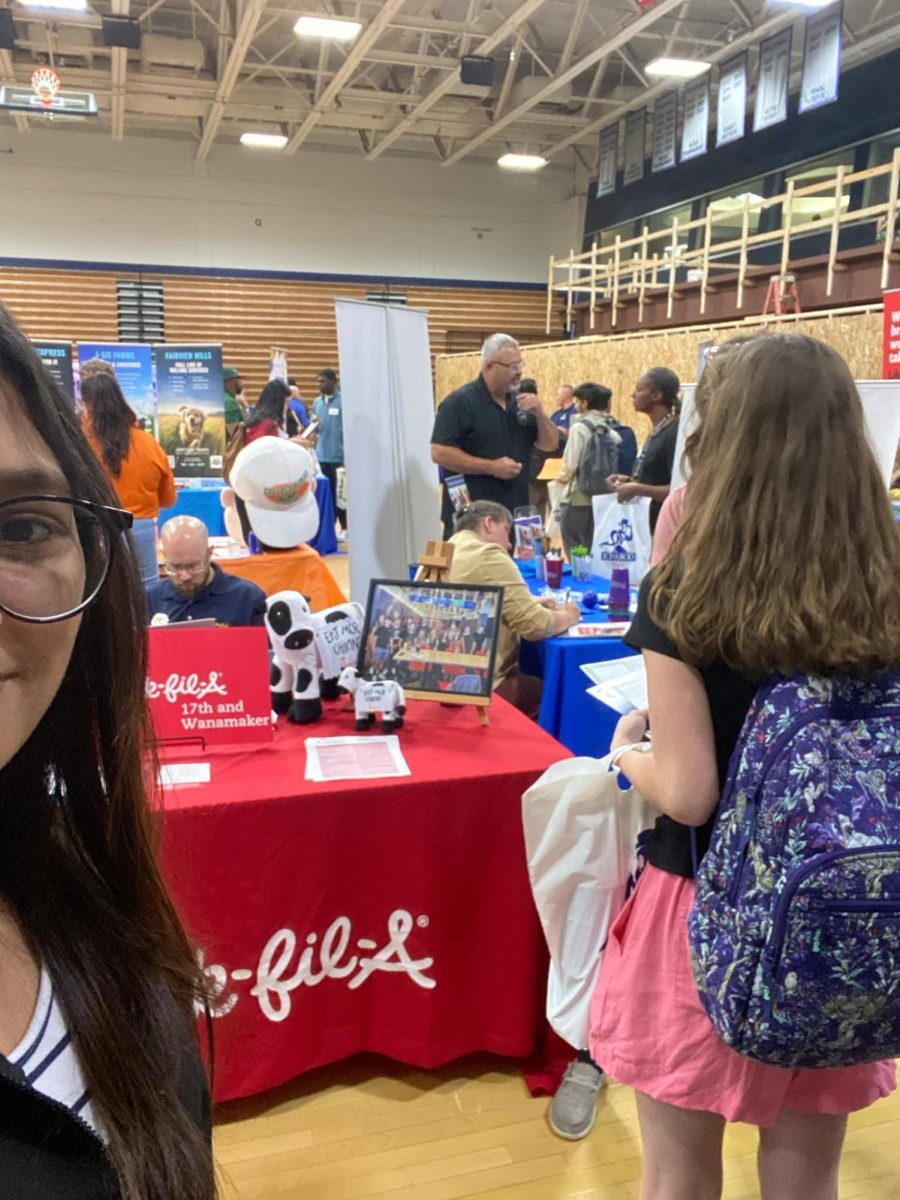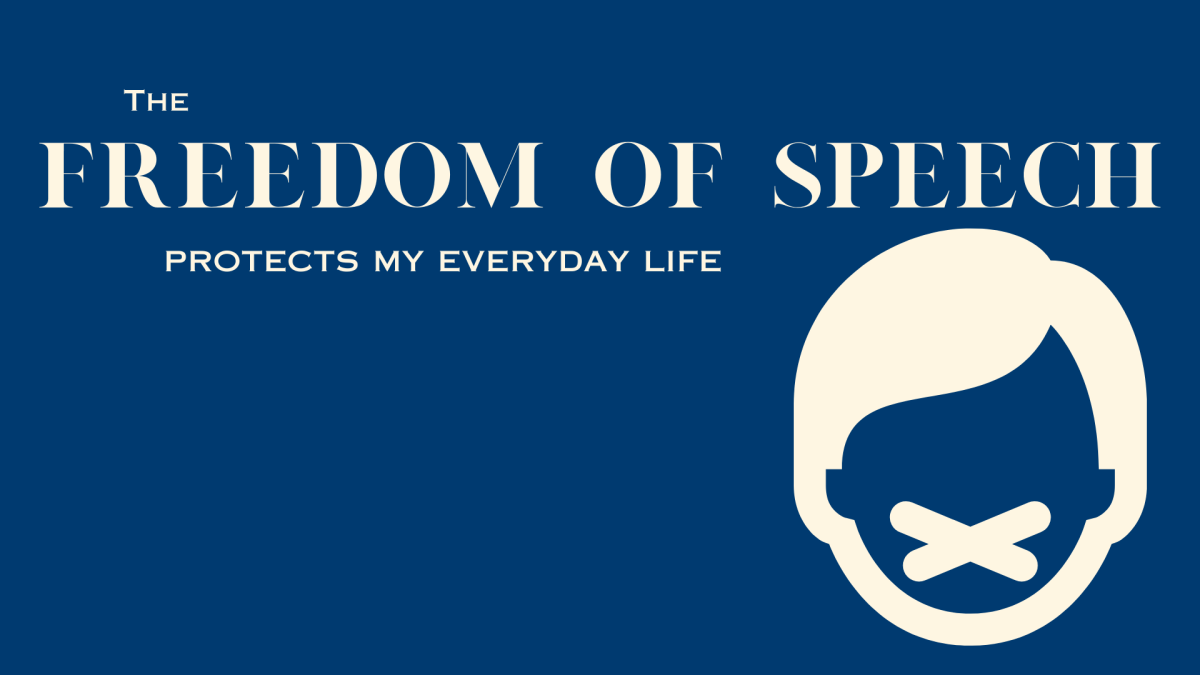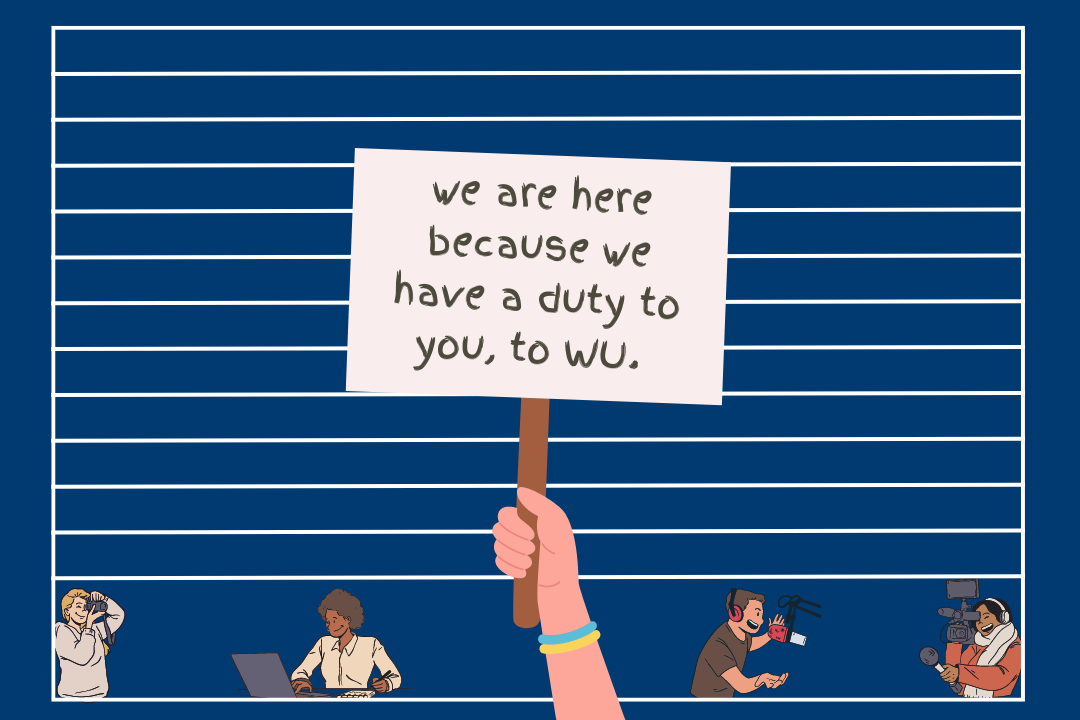The First Amendment is like the superhero cape of the American Constitution, giving citizens the power of free speech. Yet, there’s a lurking villain threatening this power, particularly on university campuses, known as the “chilling effect.” This phenomenon might sound like the plot of a comic book, but its impact is all too real.
Picture this: universities should be buzzing with the free exchange of ideas, a sort of intellectual all-you-can-eat buffet. But when the chilling effect strikes, it’s as if someone has slapped a “do not touch” sign on half the dishes. Academic freedom takes a hit as students and faculty shy away from exploring and debating controversial or unpopular topics. The result? Everyone is left intellectually hungry, deprived of the full menu of ideas necessary for genuine education and growth.
As a Black woman attending Washburn, I’ve felt this chilling effect firsthand. It often seems like certain topics can only be viewed through a narrow lens, without actual nuance or deep discussion. This stifles meaningful dialogue and diminishes the richness of academic exploration. Topics related to race, gender and social justice, for example, are sometimes glossed over or avoided altogether because they are seen as too contentious. This avoidance not only limits the depth of understanding but also perpetuates a culture of silence around important issues that need addressing. The chilling effect creates an environment where students of diverse backgrounds feel that their experiences and perspectives are not valued in academic discourse.
This chilling effect doesn’t just stop at class discussions. It can extend its icy grip to student journalists who, like detectives of truth, are suddenly warned to “back off, kid” when they get too close to a big story. Fear of administrative backlash, funding cuts or public criticism pushes them towards self-censorship, avoiding important but sensitive issues. Consequently, the student body remains blissfully ignorant, yet woefully uninformed, lacking the critical investigative reporting that holds institutions accountable.
The threat isn’t limited to legal action alone; social repercussions play a big role. Imagine a phantom lawyer whispering in your ear every time you open your mouth: “Say that, and you might just land in hot water.” On campuses where robust debate should be fundamental, the fear of expulsion, social shunning or even losing years of hard work and the chance to graduate if the institution disapproves of what you say on a polarized topic, can be particularly paralyzing. This is especially true when discussing highly sensitive topics like the ongoing genocide in Palestine and invasion of Lebanon by Israel. Students may feel that even broaching the subject could lead to severe backlash, both legally and socially. The fear of being labeled or ostracized can be overwhelming, leading many to avoid the topic altogether.
Then there’s the psychological impact. Constant worry over saying the wrong thing can create a stifling environment. Students may feel isolated, thinking their opinions are too dangerous to voice. It’s like a mental straitjacket that suppresses their true selves and undermines their educational experience. When it comes to discussing rampant sexism on college campuses, the ongoing genocide in Palestine, the history of American Imperialism or the upcoming election, this fear can be even more pronounced. Students might feel that their views are unwelcome or too controversial, leading to a sense of isolation and frustration. This not only hampers their academic growth but also their personal development, as they are unable to fully express their thoughts and engage in meaningful dialogue.
Universities must be places where ideas flourish through rigorous debate and the free exchange of thoughts. It’s about fostering an environment that values both academic freedom and the pursuit of truth, ensuring that learning and growth are never stifled by fear or intimidation.
However, universities aren’t exactly democracies. Think of them more like kingdoms with a Board of Trustees or Board of Governors sitting on the thrones. They’re the ones making the big decisions about budgets, policies and the strategic direction of the institution. It’s their opinions and beliefs that carry weight when it comes to deciding which opinions matter and what knowledge gets shared and spread. Essentially, they’re the ones determining the academic menu, and we just get to choose from the dishes they deem worthy.
Free speech is the bedrock of a functioning democracy. It shapes public opinion, which, as Judge Learned Hand noted about what he valued in Harvard’s and America’s approach to education, is the ultimate source of government in a democratic state. In a perfect democracy, public opinion drives government action, not the other way around. The First Amendment ensures that citizens set the agenda, treating all speech with tolerance and equality.
The First Amendment’s protections also extend to academic freedom, a critical value for universities. Universities and their faculty are the wizards crafting and spreading disciplinary knowledge for the public good. Without these freedoms—research, publication, teaching and the liberty to speak out on university-related and public matters—our access to knowledge and, by extension, our self-government would be as barren as a deserted library.
This underscores the importance of combating the chilling effect on not only campuses but at Washburn specifically. When fear of expulsion, social shunning or losing the chance to graduate because of disapproved speech looms, it paralyzes robust debate. The psychological impact can be severe, with students feeling their opinions are too dangerous to voice, stifling their true thoughts, emotions and selves. Combating the chilling effect is essential for a dynamic, open academic environment, where free speech and diverse viewpoints are protected and encouraged.
As students, taking action is crucial. Combating the chilling effect is essential to maintaining a dynamic and open academic atmosphere. Universities should be hotbeds of ideas and debate, not frozen tundras of conformity. Protecting free speech and diverse viewpoints is not just a matter of principle; it’s crucial for personal development.
We need to speak out, challenge censorship and support each other against backlash and retaliation. Push for policies that protect free expression and hold administrators accountable. Foster open dialogue, document censorship and use student journalism to highlight injustices. Stand united against the phantom lawyer and the caped villain. By standing together, we can help thaw the chilling effect, ensuring that universities remain champions of free speech and diverse ideas.
Begin by fostering a culture of open dialogue within student organizations and clubs. Encourage your peers to express their opinions, even if they’re unpopular. When you hear of administrative pressure or threats, unite and make your voices heard collectively. Build alliances with faculty members who value free speech and can support your cause. Also, leverage social media to raise awareness and mobilize support. Document instances of censorship and self-censorship and share these stories to highlight the issue. Ultimately, stay informed about your rights and use the power of student journalism to bring attention to any injustices. Stand together and persistently advocate for open expression, this way we can keep academic environments warm and inviting, making sure the First Amendment continues to shine brightly and create a more inclusive and vibrant academic environment.
Edited by Jeremy Ford











Joel Davis • Oct 31, 2024 at 9:41 pm
There is no “genocide” in “Palestine.” There hasn’t even been a “Palestine” for over 76 years, and FLASE accusations of “genocide” are disgusting and inexcusable. Pallywood propagandists aren’t being properly punished for their antisemtic, terrorist-enabling behavior.
Linda Tulleinda • Oct 26, 2024 at 11:51 am
This is the most profound & well written article I have ever seen in a student publication. Hats off to the author & sincere thanks to your staff for being bold enough to share it.